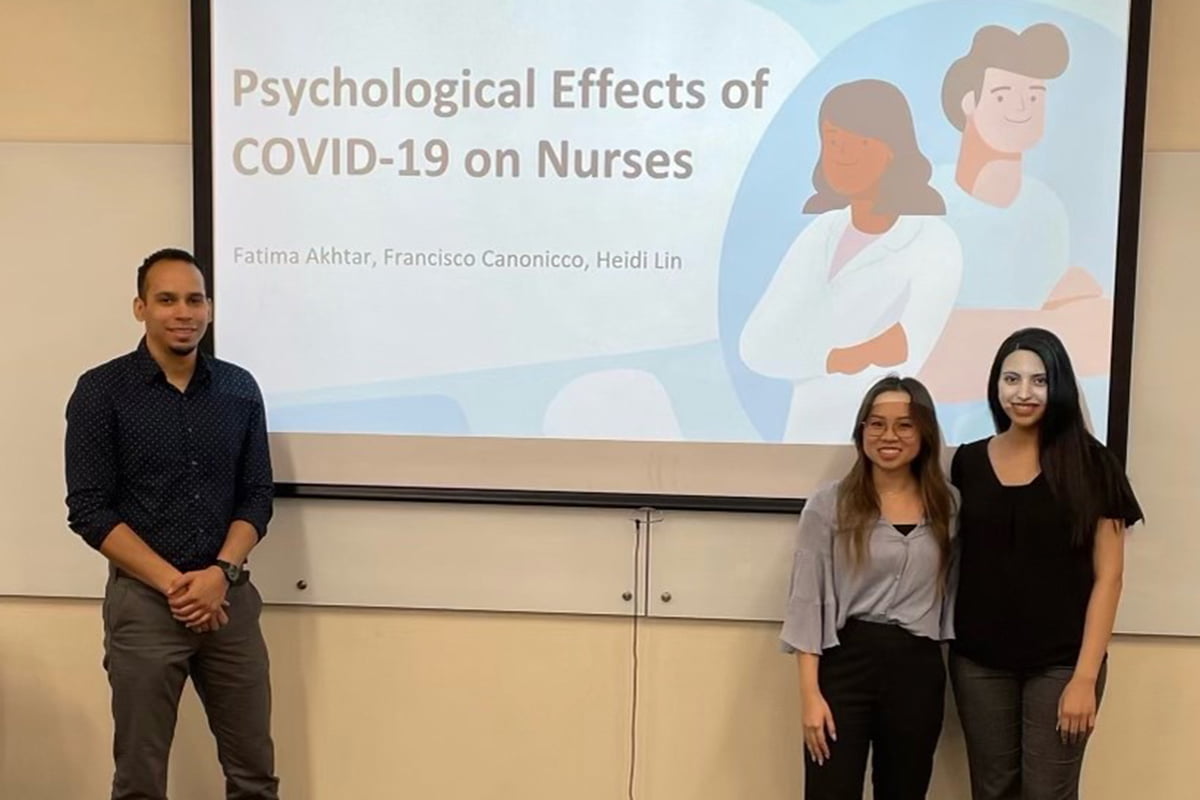COVID-19 increased mental health risks among nurses
Nurses have experienced higher levels of burnout and associated mental health risks since the beginning of the COVID-19 pandemic, according to a study by graduate researchers in the Department of Psychology at The University of Texas at Arlington.
The study, titled “Psychological effects of COVID-19 on nurses,” was the culmination of a semester-long capstone research project conducted by second-year master’s students Francisco Canonicco, Fatima Akhtar and Heidi Lin, each of whom graduated during spring 2022 commencement ceremonies.
“It is no surprise that burnout among nurses has increased in the wake of COVID-19,” Canonicco said. “This study also examines how work-related stress could correlate with other mental health issues.”
In a survey of local and traveling nurses, the researchers measured burnout using a standardized assessment with three subcomponents: emotional exhaustion, depersonalization and a lack of personal accomplishment. In addition to burnout, nurses provided self-assessments regarding their levels of depression, aggression and anxiety.

Results showed that 64% of participants reported higher or significantly higher perceived levels of burnout than they had experienced prior to the pandemic. Those feelings of burnout were significantly correlated with levels of anxiety, depression and anger.
Tracy Greer, professor of psychology and the students’ adviser, said the study spotlights an urgent need among health care workers.
“The correlation between burnout and other mental health risks is an important area for nurses and their employers to monitor,” Greer said. “Regardless of circumstances, nurses need mental health support to thrive in the vital role they play in the health of their communities. When nurses are cared for, everyone benefits.”
The study opened Canonicco’s eyes to the need for employers to implement good mental health practices in the workplace.
“Burnout can affect workers in any industry,” Canonicco said. “It’s so important to be aware of your own mental health and the wellness of those around you. If you need help, don’t be ashamed to ask for it.”